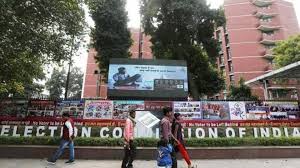Amid Bihar row, Assam wants NRC considered in EC’s voter roll revision

India’s Election Commission (EC) is preparing for a nationwide update of its electoral rolls ahead of the 2026 elections. While this routine exercise usually flies under the radar, it’s now making headlines. Assam and Bihar have both entered the spotlight—but for very different reasons.
Assam has urged the EC to wait before updating its voter list. It wants the final National Register of Citizens (NRC) to be included before the process begins. The state argues that using the NRC will help keep the voter rolls accurate and prevent irregularities.
Why Assam Wants NRC Included
Assam remains the only Indian state to conduct a full NRC exercise. In 2019, the state released a draft list under the supervision of the Supreme Court. Out of 3.3 crore applicants, about 1.96 million people were left out. The goal was to detect and remove illegal immigrants—mainly from Bangladesh.
Since then, the final NRC has remained unpublished. The Registrar General of India has yet to certify it. Assam officials now say the EC should delay the revision of voter lists until the final NRC is ready. They believe that including this data will ensure that only legal citizens vote in upcoming elections.
But there’s a catch. The Assam government itself has criticized the draft NRC. It has called the list inaccurate and claimed it included illegal immigrants. This raises a major contradiction: why demand a document they’ve already dismissed as flawed?
Bihar Faces a Different Storm
While Assam wants the NRC recognized, Bihar faces a different issue. The state has begun a special revision of its voter list. But opposition parties claim this process resembles a covert NRC operation. They argue that it’s happening without a legal framework and targets poor and marginalized communities.
Critics fear the verification process could unfairly remove voters, especially among Muslims, Dalits, and tribal communities. Some political leaders say the EC is going beyond its legal authority.
The Bihar government, however, supports the move. Officials say they aim to eliminate duplicate voters and improve record accuracy. But the timing has made many suspicious—especially as state elections approach.
EC Stuck in a Tough Position
The EC is facing pressure from both sides. On one hand, Assam wants to delay roll revisions. On the other, Bihar faces accusations of voter suppression. The EC must now decide how to move forward without creating legal or political chaos.
So far, the commission has acknowledged Assam’s request. But it has not confirmed whether it will accept the NRC as a legal basis. Without the Registrar General’s approval, the final NRC has no official status. That makes it risky for the EC to rely on it.
What Could Happen Next
If the EC agrees to use NRC data in Assam, it may set a precedent. Other states could then ask for similar reviews. This could turn a routine voter list update into a citizenship debate.
There are also concerns about voter rights. If the EC removes names based on NRC data, millions could lose their voting power. Assam’s history of ethnic tensions adds to the risk. A poorly managed voter purge could lead to serious unrest.
The EC usually follows three basic criteria for voter eligibility: age, residency, and documentation. Citizenship checks have never been a part of this process. Changing that could weaken India’s democratic structure.
Looking Forward
Assam officials believe the final NRC will be published by October 2025. If that happens, it could align with the EC’s voter list timeline. The EC may still need to wait for legal clarity before using the document.
Meanwhile, Assam and Bihar highlight a deeper issue. Voter roll updates are no longer just about cleaning up records. They’re now tied to identity, citizenship, and political power.
The EC must tread carefully. It has to balance legal requirements, state demands, and the rights of citizens. Any misstep could damage public trust and trigger larger political conflicts.






